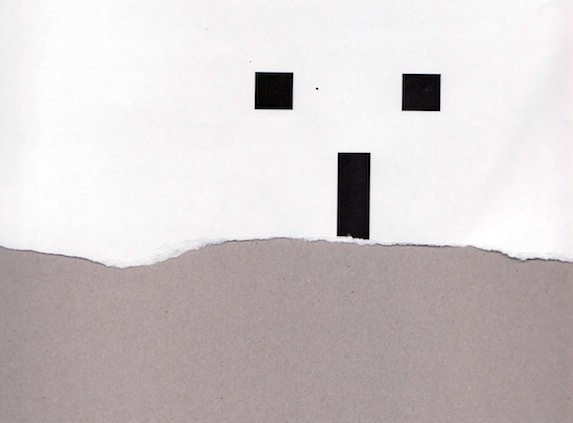24 Dec 2018
Events
Paths Crossing Conference: Freedom of Speech – Perspectives in Contemporary Art in Europe
15-16 October, Gallery Augusta
The Freedom of Speech: Perspectives in Contemporary Art in Europe conference will debate the burning issues of freedom of speech and freedom of expression in Europe. The conference will take place at Gallery Augusta on the island of Suomenlinna, Helsinki, on October 15–16, 2012.
Authoritarian and right-wing populist tendencies are restricting fundamental human rights in Europe, and this is affecting the freedoms of artists and intellectuals. How is this situation reflected in forms of representation in art? What positions and strategies can individuals and institutions adopt, and what are their consequences? What is the relationship between contemporary art and activism?
Art is always linked to freedom of speech and expression, and thus to human rights in general. The wider frame of reference for the conference is the global human-rights situation in the aftermath of September 11, 2001, when human rights have been violated, and limited, in the name of ‘national security’ etc. What do human rights and the concomitant freedom of speech mean, at a time when the idealism associated with human rights following the Second World War and the Holocaust has faded under the pressure of both political and neo-liberal economic interests?
Curator Katerina Gregos from Brussels will address this theme via Newtopia – The State of Human Rights, an exhibition that she curated recently, and now being shown in Mechelen, Belgium, 1.9–10.12.2012. Other speakers will address the subject through their own personal experiences. Vasyl Cherepanyn from Kiev, Ukraine, will analyse its cultural and political context, censorship and attacks on socially and politically oriented contemporary art. He will give examples from the Visual Culture Research Center, of which he is Director. Researcher, artist and activist Ilya Budraitskis from Moscow will highlight the way that the enormous social resonance of Pussy Riot can be understood and explained only by its context: by the rise of a new protest movement in Russia and the weak points of that movement, with its inarticulate political agenda and impoverished political language. Artist Tamara Moyzes from Prague will describe how the negative perception of political art in the Czech Republic is related to the previous totalitarian regime, which produced state-commissioned political art. Director of Trafo Gallery, Áron Fenyvesi from Budapest will highlight the institutional strategies used in the Hungarian political context, where freedom of speech and expression have been limited in recent years. The artist and co-director of the Trampolin House in Copenhagen Morten Goll will use the Muhammad cartoons crisis (2005), which was sparked by Danish xenophobia materialized as a defence of unconditional freedom of speech, as a starting point for explaining the working principles of Trampolin House, a culture-based house for refugees and other citizens of Denmark.
The Conference is being curated by Marita Muukkonen. Its themes have emerged during Paths Crossing – a research and production residency project for new and applicant EU Member States. HIAP is coordinating the project together with Baltic Art Center, Visby (SE), Fabrikken for Kunst og Design, Copenhagen (DK), Temple Bar Gallery + Studios, Dublin (IE) and Nordisk Kunstnarsenter Dalsåsen (NO). The project is supported by the Culture Programme of the European Union.
The Conference will start on Monday, October 15, 2012, at 5 pm with a HIAP Talk by Katerina Gregos, and with a comment by the chairperson of Finnish PEN, Jarkko Tontti, and will continue on Tuesday, October 16 from 11 am to 5 pm.
PROGRAMME
Monday, 15.10.
5 – 7 pm
HIAP Talks
Curator Katerina Gregos from Brussels will address the theme via Newtopia – The State of Human Rights, an exhibition that she curated recently. This is now being shown in Mechelen, Belgium, 1.9–10.12.2012.
Comment by the chairman of Finnish PEN, Jarkko Tontti.
The session will be chaired by curator Marita Muukkonen.
Tuesday, 16.10.
11 am – 1 pm
Opening words by curator Marita Muukkonen
Vasyl Cherepanyn from Kiev will analyse the cultural and political context, censorship and attacks on socially and politically oriented contemporary art. He will give examples from the Visual Culture Research Center, of which he is director.
Researcher, artist and activist Ilya Budraitskis from Moscow will highlights the way that the enormous social resonance of Pussy Riot can be understand and explained only by its context: by the rise of a new protest movement in Russia and the weak points of that movement, with its inarticulate political agenda and impoverished political language.
Comment by the acting director of the Finnish section of Amnesty International, Päivi Mattila.
1 – 2 pm Lunch Break
2 – 5 pm
Artist Tamara Moyzes from Prague will describe how the negative perception of political art in the Czech Republic is related to the previous totalitarian regime, which produced state-commissioned political art.
Director of Trafo Gallery, Áron Fenyvesi from Budapest will highlight the institutional strategies used in the Hungarian political context, where freedom of speech and expression have been limited in recent years.
Artist and co-director of the Trampolin House in Copenhagen Morten Goll uses the Muhammad Crisis (2005), which was sparked by Danish xenophobia materialized as a defence of unconditional freedom of speech, as a starting point for explaining the working principles of the Trampolin House, a culture-based house for refugees and other citizens of Denmark.
Free entrance. No registration required.

